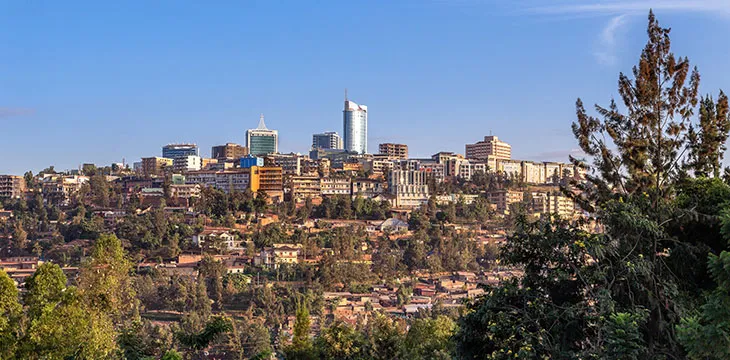|
Getting your Trinity Audio player ready...
|
Rwanda is examining how blockchain technology could improve the supply chain for tantalum, amid international efforts to resolve issues around so-called conflict minerals.
The metal, which is used in several types of consumer electronics, is a significant export in Rwanda, with concentrates from the country accounting for as much as 50% of total global supply according to some measures. However, there is concern internationally around conflict extractions—mining in areas of conflict, with proceeds which often feed into funding and perpetuating fighting between warring armies and factions.
In a statement, Rwandan minister Francis Gatare, CEO of the country’s Mining, Petroleum and Gas Board, said a new blockchain platform has already been implemented by one of Rwanda’s major exporters.
Mineral markets have become increasingly reluctant to do business with Rwandan companies trading in tantalum and other minerals, amid ongoing conflict in the country. Thus a blockchain platform which can accurately check the supply chain from origin to market could be a significant benefit to the tantalum industry there.
In delivering the blockchain platform, the government of Rwanda has drafted in the help of Circulor, a London-based blockchain startup pioneering a supply chain blockchain built on the Hyperledger consortium’s Fabric platform.
The platform is already being used by mining firm PRG Resources, which took part in initial trials of the platform, and then migrated to using the technology in its production. The plan now will see the platform rolled out across the wider mining sector in Rwanda. CEO of Circulor Douglas Johnson-Poensgen said the platform will add significant value to miners in Rwanda.
“Circulor will not only assist miners in Rwanda to adhere to strict guidelines laid out in international agreements to remove conflict minerals from the supply chain but will also record all the production stages before a smartphone or computer reaches the consumer,” he explained.
Blockchain technology has become increasingly relevant to extraction industries in recent months, with mining companies in particular turning to blockchain technology for tracking provenance.
Back in May, diamond firm De Beers conducted blockchain trials through the diamond supply chain, while China-based ZhongAn Technology released a similar model for tracking gems from origin to market.

 07-12-2025
07-12-2025 





